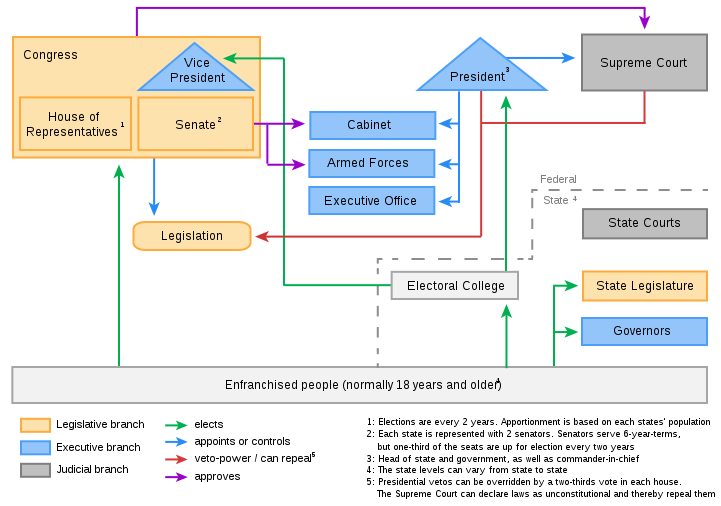1. Summary
Politics is in essence the way a group of
people make decisions, be it in a large scale corporation or a small scale
classroom. The term is more commonly used as a reference to the government, in
terms of political power, decisions, authority and so on.
Political power allows a group of leaders
in society to allocate public resources with the aim of improving their
jurisdiction’s quality of life or economy. This power is based on the level of
influence that the group has over others, which can be gained through means
such as money. Talking about political power, one cannot forget the authority
that the government has. As a government, their authority is their right to
exercise change within the community.
There are 3 types of authority:
a.
Rational-legal Authority – Barack Obama,
Constitution of the U.S.A
Authority that
derives its legitimacy based on formal rules and established laws.
b.
Traditional Authority – King Abdullah
bin Abdul al-Saud, hereditary monarch
Authority
derived from long-established social elements, such as customs and habits.
Power is passed down from generation to generation.
c. Charismatic Authority – Joseph Smith Jr., founder of Mormonism
Authority
derived from leader’s charisma, personality, or support of higher power (e.g.
God)
Government authority often leads to an
exertion of force if anyone doesn’t not do what the government deems the right
thing to do. This poses a paradox, as violence from the government seems to be
more “correct” than violence from non-government personnel that have not been authorized to commit that violence.
This begs the question, can a government operate successfully if it did not
have the power to use force?

Figure A: A Troubled President (By Elizabeth Cromwell (http://chesh.org/barack/DSC_0007.JPG) [GFDL (http://www.gnu.org/copyleft/fdl.html) or CC-BY-SA-3.0 (http://creativecommons.org/licenses/by-sa/3.0/)], via Wikimedia Commons)
Certain sensitive issues arise in the
running of a political system that mostly center on inequality. In the case of
gender, women are underrepresented in political positions. This in turn affects
voter choice, as men tend to vote for the more conservative party if they feel
threatened by gender and racial minorities. Race, Age and Societal Class also
contribute to their share of political inequality.
2. Something of interest to me
With regards to the recent US Presidential
Race, there is one glaringly obvious problem with the system; Donald Trump. A
candidate that apparently has so much charisma that he is able to garner the
support of a huge portion of the population, despite all the judgmental and
unsubstantiated comments he makes. What happens when a charismatic Trump gets
elected and in turn protected by the Constitution, and he is unable to do
anything he promised? (Please excuse my comments if they are wrong; I have much
to learn about US politics)

Figure B: The Unites States Political System
(By 111Alleskönner - Own work, CC BY-SA 3.0 de, https://commons.wikimedia.org/w/index.php?curid=22851075)
3. Discussion point
Referring back to the above, I have my
doubts in a system where a country’s citizens have to choose between 2 very
different leaders, and what happens to the other half of the country that did
not choose the elected leader. How can a country function as 2 halves with
different approaches to the same problems? I’m not sure how an election can be
deemed successful if the winning candidate only wins by a small margin. Even
with repeated votes until a higher percentage of support is won, who’s to say
that those votes were made by people of sound mind, or who just wanted the
election to end and for things to move along?
No comments:
Post a Comment